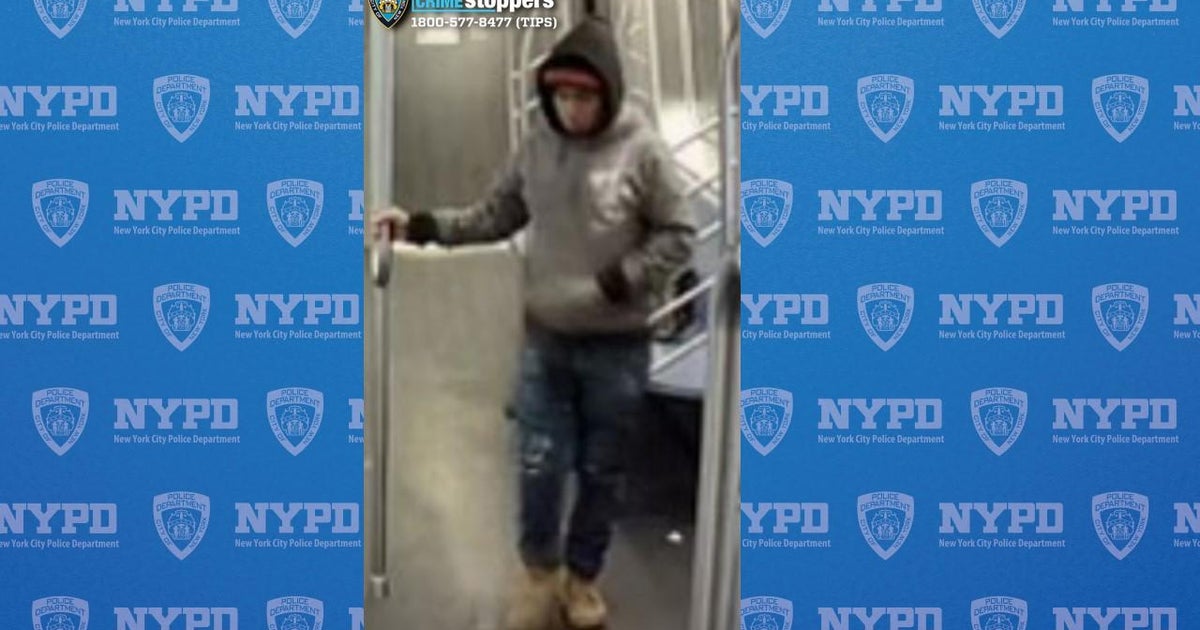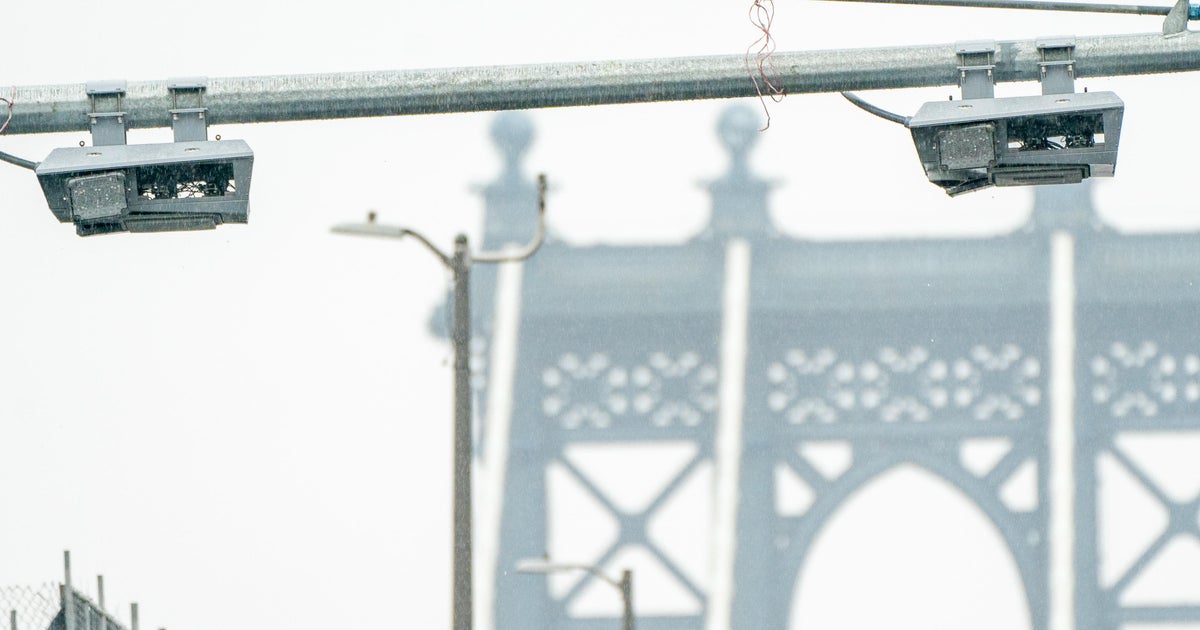Extra Ebola Screenings At JFK Set To Begin Saturday; Fight Against Virus Continues On Multiple Fronts
NEW YORK (CBSNewYork/AP) -- Extra screening measures aimed at identifying sickly passengers from countries experiencing the Ebola outbreak are set to begin at one of five U.S. airports this weekend.
Airline passengers arriving from three West African countries will face temperature checks and other screening measures starting with John F. Kennedy International Airport on Saturday.
EXTRAS: Fact Sheet On Ebola Screenings | More From The CDC | Ebola Q & A With Dr. Jonathan LaPook
They'll expand over the next week to Newark Liberty, Washington Dulles, Chicago's O'Hare and Hartsfield-Jackson Atlanta international airports.
In addition to temperature checks, agents will also be asking questions about the passengers' travel and potential contact with anyone who may have been infected with Ebola. If anyone shows signs of Ebola, they'll be evaluated by a quarantine officer.
As CBS 2's Matt Kozar reported, the CDC will be sending extra staff to New York to assist in screening at JFK.
Case-by-case, health workers will direct the passenger either to the local medical system or public health system for possible treatment or routine follow-ups, including daily temperature readings for the 21-day Ebola incubation period. There are quarantine areas at each of the five airports that can be used, if necessary.
As CBS 2's Dana Tyler reported, the screening procedures are set to go into effect as the World Health Organization announced that 4,033 people have died from the disease. That included the first, and only, fatality in the U.S.
As concern grows, the United Nations has been addressing the public health crisis, and the concerns that Ebola cases will increase quickly if nothing is done.
"You sometimes see films about this sort of thing, and you imagine -- how can such a thing happen?" said UN Special Envoy David Nabarro. "This is more extreme than any film I've ever seen. This is a real challenge to all of us that is going to require every piece of ingenuity and collective action that we can mount.
The assembly also heard via satellite from Dr. Abubakarr Sulaiman Fofanah, the minister for health of Sierra Leone, about conditions in the West African nation. Sierra Leone does not have enough hospital space, and also has a backlog of Ebola cases in laboratories.
"Our customized laboratories are too few in numbers," Fofanah said. "As a result, we are still not able to catch up with the work load. Specimens are queueing for days in the laboratory. As a result, our holding centers becoming breeding grounds for propagating the epidemic. "
As the UN coordinates the global response, the world body said only one quarter of the $1 billion that UN agencies have appealed for has been funded to fight the virus. President Barack Obama has pledged 4,000 troops.
The first troops have arrived in Monrovia, Liberia, and have been setting up a medical facility specifically for health workers. Liberians watched as troops prepared to take on an invisible enemy.
"We'll build this hospital. We'll build these Ebola treatment units, provide these labs -- a lot of these tangible thing," said U.S. Army Africa Commander Major Gen. Darryl Williams. "But there's a lot of intangible nature to this fight, and you want to give people the resiliency; the hope that they can continue on, and fight this, and see this through."
Meanwhile in the U.S., an Ebola virus is being fast-tracked and tested on humans – in a process that normally takes years, but has been reduced to months. Twenty volunteers at the National Institutes of Health have been trying to make it safe.
The outbreak has killed more than 4,000 people, according to the latest World Health Organization figures. The vast majority of those deaths have been in Guinea, Liberia and Sierra Leone.
Preparations Continue In NYC, Across The U.S.
On Thursday, Mayor Bill de Blasio convened a meeting of city agencies at City Hall as a display of readiness against the spread of the deadly virus.
Representatives from the U.S. Centers for Disease Control and Prevention and the federal Department of Homeland Security also attended.
De Blasio said there is "no cause for alarm" in the Big Apple.
"This has been playing out now over weeks and weeks," the mayor said. "The planning has been going on now; it is intensifying. The important point here is that we have to understand Ebola for what it is and not make it something mysterious."
He said the city's hospital system is ready and is urging New Yorkers to seek medical help if they feel sick.
Meanwhile in Dallas Friday, the head of the House Homeland Security Committee held a hearing on the response to Ebola, especially the flaws exposed in the healthcare system following the death of Thomas Eric Duncan, the first Ebola patient diagnosed in the United States.
Duncan carried the deadly virus with him from his home in Liberia, though he showed no symptoms when he left for the United States. He arrived in Dallas on Sept. 20 and fell ill several days later. He died in a Dallas hospital Wednesday.
Duncan's temperature spiked to 103 degrees during the hours of his initial visit to an emergency room, a fever that was flagged with an exclamation point in the hospital's record-keeping system, his medical records show.
Despite telling a nurse that he had recently been in Africa and displaying other symptoms that could indicate Ebola, he underwent a battery of tests and was eventually sent home.
Duncan's family provided his medical records to The Associated Press, more than 1,400 pages in all. They encompass his time in the ER, his urgent return to the hospital two days later and chronicle his steep decline as his organs began to fail.
Ebola isn't contagious until symptoms begin and it spreads through direct contact with the bodily fluids of patients.
With no approved medications yet for Ebola, doctors have tried experimental treatments in some cases, including drugs and blood transfusions from others who have recovered from Ebola. The survivor's blood could carry antibodies for the disease that will help a patient fight off the virus.
Meanwhile, an apparent Ebola hoax set off a full scale scare on a flight from Philadelphia to Punta Cana in the Dominican Republic.
Passengers recorded video as crews in Hazmat gear boarded US Airways Flight 845 when it arrived in the Dominican Republic on Wednesday.
The flight was isolated for two hours after a passenger reportedly said he had Ebola and said he had traveled to Africa.
The airline later apologized to travelers for the inconvenience.
Check Out These Other Stories From CBSNewYork.com:
(TM and © Copyright 2014 CBS Radio Inc. and its relevant subsidiaries. CBS RADIO and EYE Logo TM and Copyright 2014 CBS Broadcasting Inc. Used under license. All Rights Reserved. This material may not be published, broadcast, rewritten, or redistributed. The Associated Press contributed to this report.)



